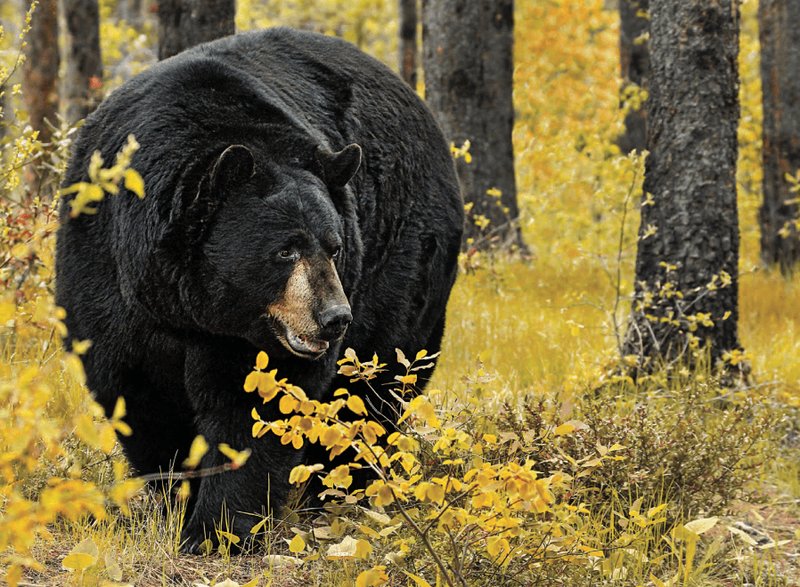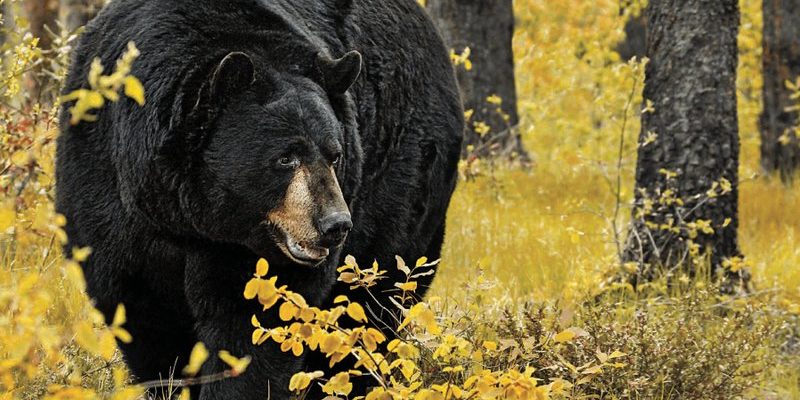
These bears play crucial roles in their ecosystems, acting as both predators and scavengers. Their diets and hunting techniques are fascinating topics, and understanding them helps foster appreciation for wildlife health and conservation. So, grab your coffee, and let’s dig in!
What Do Black Bears Eat?
Black bears are omnivores, which means they consume both plants and animals. Their diet can vary significantly depending on the season and location, much like how a buffet has different dishes available at different times. Generally, black bears eat a mix of fruits, nuts, insects, and small mammals.
In spring, when food is scarce, they often start munching on green vegetation like shoots, grasses, and dandelions. As summer rolls in, they feast on berries such as blueberries, blackberries, and raspberries. You might be wondering, why are these fruits so important? Well, they provide essential nutrients and energy, especially before hibernation.
By fall, the diet shifts again. Bears turn into nut and acorn connoisseurs, storing up fat for the winter months ahead. Their ability to switch diets based on season reminds us of how important adaptability is—not just for black bears but for all wildlife.
Understanding Seasonal Eating Habits
The seasonal changes greatly influence a black bear’s diet. For instance, in spring, after a long hibernation, bears emerge to find fresh greens popping up. Their stomachs are empty, and they’re eager to eat whatever’s available.
As summer arrives, black bears are often seen foraging for berries, which can make up a large part of their diet during this time. When you think about it, it’s like their version of a summer picnic! You can find them rummaging through bushes, seeking out the most ripe and delicious fruits to help them bulk up before winter sets in.
By the time fall comes around, it’s all about fat storage. Bears instinctively know they need to gain weight before hibernation, so they focus on high-calorie foods. This is when they turn to nuts and acorns, which are like energy bars for bears—packed with fat and nutrients. Their clever eating habits help ensure they have enough energy reserves to survive the cold months ahead.
Hunting Strategies of Black Bears
While they primarily rely on foraging, black bears are also adept hunters. Their hunting strategy isn’t about stealth and speed like you might see in big cats. Instead, it’s more about patience and observation. Black bears often take their time, waiting for the right moment to strike.
For example, they may stand near a stream or river and watch for fish to swim by. When the time is right, they’ll catch salmon using their powerful front paws. This method shows their ability to adapt based on available food sources and makes them effective hunters.
Additionally, black bears can also scavenge from other predators, which is somewhat like hunting without the effort. If they come across a carcass left by another animal, they’ll take advantage of that free meal. It’s an efficient strategy that speaks to their resourcefulness.
How Do Black Bears Hunt for Fish?
When it comes to catching fish, black bears have some clever tricks up their sleeves. They often hunt during salmon spawning seasons, when the fish swim upstream to lay their eggs. This is a buffet moment for bears, as they can easily spot and catch fish in the shallow waters.
They typically stand on riverbanks, using their keen eyesight to watch for movement in the water. Once they see a fish, they’ll use their strong paws to swipe or grab at their prey. It’s not always a perfect catch, and sometimes they’ll miss, but they’re persistent and will keep trying until they score a meal.
To add to their skill set, black bears have a unique ability to gauge the water depth and fish behavior. They often prioritize hunting during low-light conditions, like at dawn or dusk, when fish are more active and less cautious. It’s a strategic move that maximizes their chance of success.
The Role of Scent in Hunting
Scent plays a big role in a black bear’s ability to find food, especially when they’re on the hunt. With an outstanding sense of smell—estimated to be seven times better than that of a bloodhound—bears can sniff out potential meals from miles away.
You might think of it like a detective tracking down a suspect. The bear can pick up the scent of ripe berries or even carrion from a distance, guiding them to their next meal. When they’re scavenging, their keen sense of smell helps them locate food left by other animals, like deer or smaller rodents.
This incredible olfactory ability isn’t just useful for hunting; it also plays a role in their social interactions and breeding. By detecting the scents of other bears, they can communicate and establish territory, ensuring they know who’s around and what’s available in their environment.
How Human Actions Affect Black Bear Diets
Unfortunately, human actions can significantly impact black bear diets and hunting strategies. As we develop land for housing, agriculture, and other needs, we often disturb their natural habitats. This can lead to a decrease in their food sources, forcing bears to adapt in ways that may not be beneficial for their health or survival.
Moreover, human food sources can attract bears closer to urban areas, which poses dangers for both bears and humans. When bears find dumpsters or improperly stored food, they may develop a preference for human food over their natural diet. This can lead to dangerous encounters and often results in bears being relocated or euthanized.
Here’s the thing: understanding how our actions impact wildlife can help us make better choices. Supporting conservation efforts and being mindful of how we interact with nature can help keep bears healthy and thriving in their natural habitats.
The diet and hunting strategies of black bears are a testament to their adaptability and resilience. These creatures aren’t just cute; they’re skilled foragers and hunters that play a crucial role in maintaining balance in their ecosystems. By understanding what they eat and how they hunt, we can foster a deeper appreciation for these magnificent animals.
As we continue to live alongside wildlife, it’s essential to remember that every action counts. Whether you’re hiking in the woods or simply enjoying nature, consider how you can coexist peacefully with black bears and other wildlife. By respecting their habitats and promoting awareness, we ensure that these remarkable creatures continue to flourish for generations to come.

